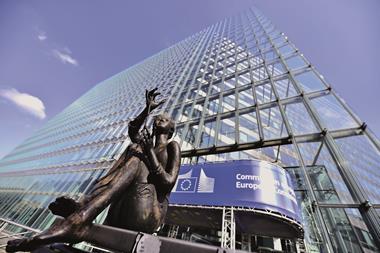UK - Findings from CBI/GVA Grimley's latest Corporate Real Estate Survey have added further weight to the British Property Federation's campaign to restore empty rate relief for unoccupied properties, as indications are a fifth of companies polled are planning to demolish buildings to avoid paying extra tax.
Rate relief was scrapped by the UK government in April 2008 in a bid to raise £1.3bn (€1.95bn) for the Treasury but has led to landlords demolishing their buildings to avoid going bankrupt paying rates.
The CBI survey, which took place between 17 August 2008 and 17 September 2008 and included responses from 152 private sector firms, showed over a fifth (21%) of businesses were either demolishing empty buildings or were considering doing so, and a further fifth (21%) were either being forced to or were considering reoccupying vacant space because they claim they cannot afford to cover the cost of the additional tax.
At least 38% of firms admitted speeding up the surrender of their leases with landlords and a balance of 24% said they plan to reduce their property holdings in the next six months.
Howard Cooke, director at property consultants GVA Grimley, said: "Falling business activity and lower demand is likely to increase the property surpluses, which will only push up the cost of paying empty property rates."
Industrial giants Segro Plc and Brixton Plc have admitted being hard hit by the tax, with rates costing Segro £2m and Brixton £1.5m to date, while Brixton revealed almost 20% of its £2.2bn property portfolio was currently vacant.
Steven Owen, deputy chief executive for Brixton Plc, said: "The detrimental effects of this tax burden need to be addressed immediately before it continues to damage the productivity of business, deter inward investment from overseas and act as a disincentive to regeneration."
Peter Cosmetatos, director of finance and investment at BPF, said scraping rate relief could lead to a "limited supply of property in the coming years," as property developers may be put off by having to pay higher rates for the vacancy periods following their developments.
Major UK brands including British Airways, Tesco, McDonalds, B&Q and Next joined property giants like Brixton, Canary Warf and Land Securities in the British Property Federations' campaign, demanding business rate relief be reapplied immediately to stop the demolition and bankruptcy chaos hitting firms.
A letter addressed to the UK prime minister claimed scrapping relief on empty property was having a "crippling effect on the UK economy, and particularly the property, retailing and manufacturing sectors."
Campaigner Liz Peace, chief executive for BPF, said: "It's like making the unemployed pay income tax. Taxing hardship and business failure is a ludicrous way to help people through the hard times. Brown must act now to undo this mess."
Scrapping tax relief is also likely to have damaging effects on pension funds' holdings in property.
"They will simply have to absorb it. It simply hits their profits. A large percentage of commercial property is held indirectly or directly by pension funds, so a reduction in profitability form properties will feed through to a reduction of returns for pension funds," said Cosmetatos.
Dozens of MPs have backed the BPF's year-long campaign and support for a commons Motion instigated by Halifax MP Linda Riordan has doubled to over 70 MPs in the last week.
"It has been very difficult to get a sympathetic hearing mainly because the Government is determined to hold onto its savings," said Cosmetatos.
"It isn't an issue that is going to go away. The more time the Government ignores it the more damage it will make to the economy", he added.
The BPF is calling for the empty rate relief that existed before April 1 2008 to be restored so that all unoccupied properties receive full relief for the first three months, while shops and offices pay 50% subsequently and industrial properties receive full relief indefinitely.












